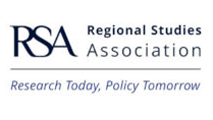Description:
The geography of environmental innovation and sustainability transitions is experiencing increasing scholarly attention (Coenen et al., 2012; Hansen and Coenen, 2015; Binz et al., 2020). The literature can be roughly divided into two strands that emphasize a ‘territorial’ and ‘sectoral’ lens, respectively. Economic geography and regional studies emphasise place-specific and territorially embedded factors influencing (green) path development processes in specific cities, regions or countries (Trippl et al., 2020; Grillitsch and Hansen, 2019; Coenen et al., 2015). Transition studies, in contrast, focus more on sectoral and industry-specific innovation patterns that often transcend territorial boundaries (Binz and Truffer, 2017; Fuenfschilling and Binz, 2018; Rohe, 2020).
Reconciling these two complementary perspectives represents a key frontier for both economic geography and transition studies (Boschma et al., 2017; Binz et al., 2020). Yet, the current literature is poorly equipped to understand the complex spatial relationships and interactions between global sector structures and regional innovation and transition trajectories. The development of new ‘green’ industries and the ‘greening’ of existing industries are influenced by complex multi-scalar dynamics. These can only be tackled with an improved understanding of the co-evolution of territorialized innovation and transition processes on the one hand, and relevant sectorial transformations in global regimes, innovation systems, production networks or value chains, on the other hand (MacKinnon et al., 2019; Boschma, 2021; Miörner and Binz, forthcoming).
This special session invites contributions that, for example, explore the intersection of global sector structures and regional path development in ‘green’ industries or the ‘greening’ of established industries, the determinants of transformative capacity of global sector structures and how regions are positioned (or not) to exploit transformative opportunities arising at the global level. We also encourage contributions that synthesise different sources/mechanisms to the sectoral embedding of regional structures.
References
Binz C, Coenen L, Murphy JT, et al. (2020) Geographies of transition—From topical concerns to theoretical engagement: A comment on the transitions research agenda. Environmental Innovation and Societal Transitions 34: 1-3.
Binz C and Truffer B (2017) Global Innovation Systems—A conceptual framework for innovation dynamics in transnational contexts. Research Policy 46(7): 1284-1298.
Boschma R (2021) The role of non-local linkages for innovation. Papers in Evolutionary Economic Geography (PEEG) 2021(3).
Boschma R, Coenen L, Frenken K, et al. (2017) Towards a theory of regional diversification: combining insights from Evolutionary Economic Geography and Transition Studies. Regional Studies 51(1): 31-45.
Coenen L, Benneworth P and Truffer B (2012) Toward a spatial perspective on sustainability transitions. Research Policy 41(6): 968-979.
Coenen L, Moodysson J and Martin H (2015) Path Renewal in Old Industrial Regions: Possibilities and Limitations for Regional Innovation Policy. Regional Studies 49(5): 850-865.
Fuenfschilling L and Binz C (2018) Global socio-technical regimes. Research Policy 47(4): 735-749.
Grillitsch M and Hansen T (2019) Green industry development in different types of regions. European Planning Studies 27(11): 2163-2183.
Hansen T and Coenen L (2015) The geography of sustainability transitions: Review, synthesis and reflections on an emergent research field. Environmental Innovation and Societal Transitions 17: 92-109.
MacKinnon D, Dawley S, Steen M, et al. (2019) Path creation, global production networks and regional development: A comparative international analysis of the offshore wind sector. Progress in Planning 130: 1-32.
Miörner J and Binz C (forthcoming) Towards a multi-scalar perspective on transition trajectories. Environmental Innovation and Societal Transitions forthcoming.
Rohe S (2020) The regional facet of a global innovation system: Exploring the spatiality of resource formation in the value chain for onshore wind energy. Environmental Innovation and Societal Transitions 36: 331-344.
Trippl M, Baumgartinger-Seiringer S, Frangenheim A, et al. (2020) Unravelling green regional industrial path development: Regional preconditions, asset modification and agency. Geoforum 111: 189-197.





